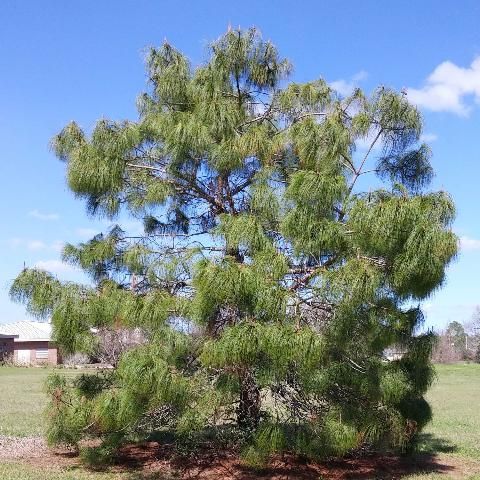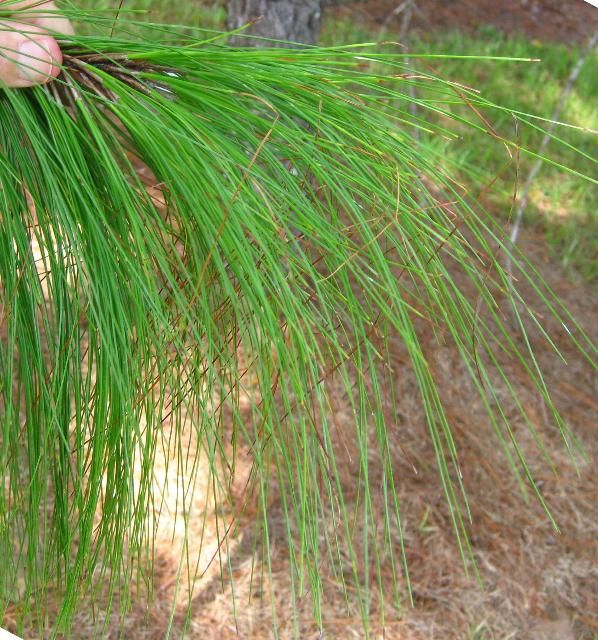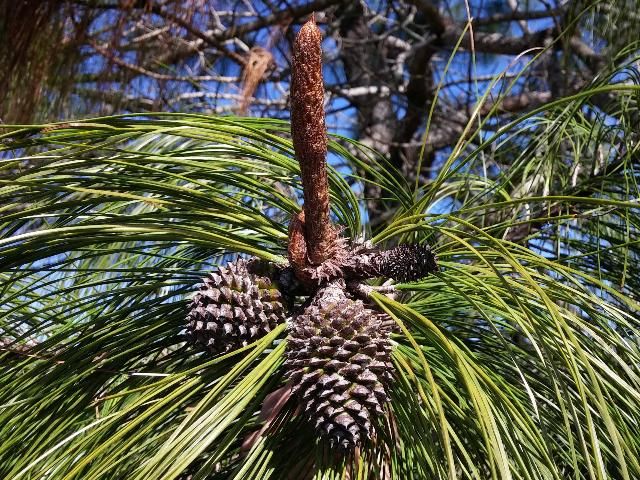This beautiful pine is distinguished by long, pendulous needles that form a graceful, open evergreen conifer. The slender needles are up to 12 inches long in groups (fascicles) of five. In its native environment, smooth-bark Mexican pine is considered fast growing and can reach more than 120 feet tall and about 60 feet wide. In southern Georgia, trees have reached heights of 32 feet and widths of 25 feet in 10 years. Trees have a pyramidal form when young, becoming flat-topped with age.

Credit: Gary Knox, UF/IFAS
This pine is primarily native to the mountains of central and southern Mexico, with populations elsewhere in Mexico and Central America. It is found in mixed conifer, pine, and conifer-oak forests. Smooth-bark Mexican pine is often harvested in Mexico for timber or pulp.
In its native range, smooth-bark Mexican pine grows in temperate to warm temperate areas with predominately summer rainfall. Florida's similar climatic conditions suggest that smooth-bark Mexican pine will adapt well throughout the state. Cold hardiness is not well-defined, but this species has grown well in southern Georgia (USDA Cold Hardiness Zone 8b).
As indicated by its common name, bark on young trees is smooth and red- to grey-brown. As the tree matures, its bark becomes dark, thick, and scaly. Two-inch pollen cones form in February or March at the bases of shoots and turn from yellow to brown with time. Seed cones also form on interior branches and are oval in shape, often asymmetrical, and curved at the base, growing to a length of 3–6 or more inches. Cones mature in their second year. The species is extremely variable in its characteristics.
The scientific name is derived from the smooth-bark Mexican pine's overall appearance, which somewhat resembles eastern white pine, Pinus strobus, native to northern North America (and not adapted to Florida). Smooth-bark Mexican pine is also known by the common name false weymouth pine, and in Spanish, pino chalmaite, pino blanco, pino lacio, and pino liso.
Smooth-bark Mexican pine is tolerant of pitch canker disease (Fusarium circinatum), but saplings are susceptible to sphaeropsis tip blight (formerly diplodia tip blight, Sphaeropsis sapinea).
This excellent pine is hard to find. The attractive appearance and fast growth of trees in northern Florida suggest smooth-bark Mexican pine would be quite popular if seed could be obtained for production and sale.
Pinus pseudostrobus (smooth-bark Mexican pine) has not yet been evaluated using the UF/IFAS Assessment of Non-Native Plants in Florida's Natural Areas (http://assessment.ifas.ufl.edu). Without this assessment, the temporary conclusion is that P. pseudostrobus is not a problem species at this time and may be recommended.

Credit: Gary Knox, UF/IFAS

Credit: Gary Knox, UF/IFAS